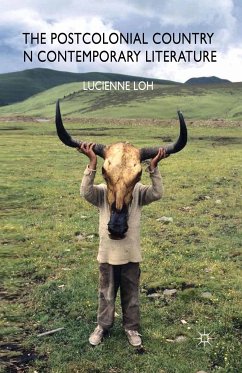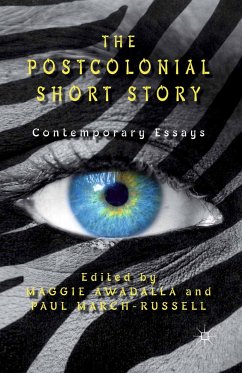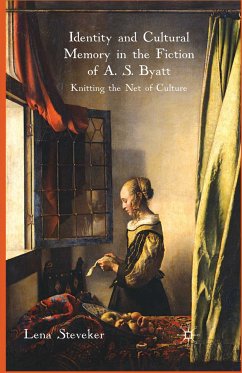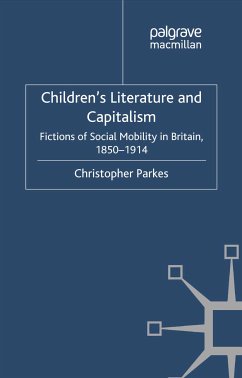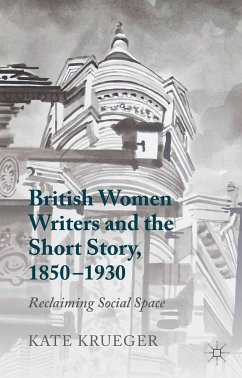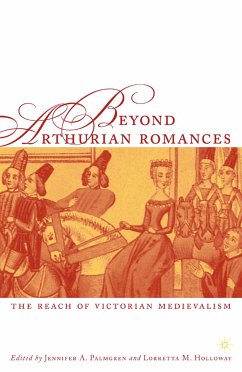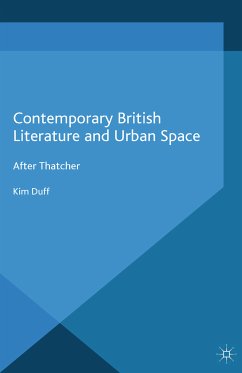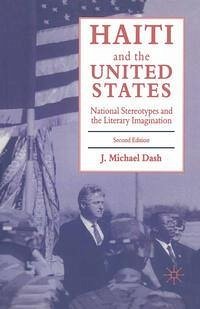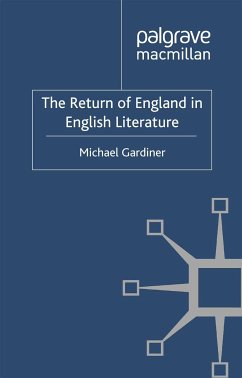
M. Gardiner
eBook, PDF
The Return of England in English Literature (eBook, PDF)

PAYBACK Punkte
20 °P sammeln!






This lively study provides an account of the 'fall and rise' of the English nation within the British discipline of English Literature between the late eighteenth century and the present day, offering a reconceptualisation of the relationship between English Literature and the formation of English cultural identity.
Dieser Download kann aus rechtlichen Gründen nur mit Rechnungsadresse in A, B, BG, CY, CZ, D, DK, EW, E, FIN, F, GR, HR, H, IRL, I, LT, L, LR, M, NL, PL, P, R, S, SLO, SK ausgeliefert werden.
MICHAEL GARDINER is Professor in the Department of English and Comparative Literary Studies at the University of Warwick, UK. His books include The Cultural Roots of British Devolution, Scottish Critical Theory Since 1960 and the forthcoming The Constitution of English Literature. He is also on the editorial boards of Textual Practice and OpenDemocracy.
Produktdetails
- Verlag: Palgrave Macmillan UK
- Seitenzahl: 211
- Erscheinungstermin: 7. August 2012
- Englisch
- ISBN-13: 9781137026026
- Artikelnr.: 45971872
'A brilliant book which makes other books on Englishness pale in comparison' - Professor Adam Piette, University of Sheffield, UK
'Born in 1946 and recalling the postwar 'New Elizabethan' push; the child of a headmistress who worked in the 'new towns' of South Oxhey and Stevenage; son of a printer wasted by the 'new managerialism,' I found the class history of my family repeatedly imbricated and recast by Gardiner's insight and argument. His interest in 'English' (the literary language and the cultural discipline) remapped my own postwar training. Gardiner's work enables me to read my own training in 'English Literature' as an inculcation in a cultural politics that was confused by the need to reinvent a British unity lost during
'Born in 1946 and recalling the postwar 'New Elizabethan' push; the child of a headmistress who worked in the 'new towns' of South Oxhey and Stevenage; son of a printer wasted by the 'new managerialism,' I found the class history of my family repeatedly imbricated and recast by Gardiner's insight and argument. His interest in 'English' (the literary language and the cultural discipline) remapped my own postwar training. Gardiner's work enables me to read my own training in 'English Literature' as an inculcation in a cultural politics that was confused by the need to reinvent a British unity lost during
Mehr anzeigen
the war, and to do so by way of a 'tradition' still 'great' enough to propose and concretize a new and transferable standard of Englishness. I read the book with an excitement matching the degree to which it provided an alternate genealogy to my past and to my discipline.' - Professor Richard Godden, University of California, Irvine, USA
Michael Gardiner's new book is a radical challenge to accepted conventions of the history of English literary studies and indeed the history of English literature. Intensely sensitive to the present moment of political change in the United Kingdom, The Return of England in English Literature charts two hundred years of educational priorities and political propaganda with reference not only to theideology and history of Empire, but specifically to the nation we call England. In the last fifty years, postcolonial literatures, and literatures from Ireland, Scotland and Wales, have established their own forms, credentials and legitimising processes, but the literature of England has never been so comprehensively revalued in its own territorial context until now. This revolutionary study redresses the imbalance that has been culturally normative for a long time from within the very nation which has, up until now, claimed an imperial provenance. It is a profoundly positive and constructive work, taking the proposition that the returned identity of a geographically defined nation-state called England might be an intrinsically valuable originating moment for revitalised literary study and cultural understanding. Lowering the sights broadens and deepens the view, and opens the prospect of politically active and wonderfully refreshing cultural engagement. In revising the history of English studies so radically and thoroughly, Gardiner's work is an extremely sharp prompt to everyone concerned with literature, education and the arts. Critical magi are seen in a new perspective: Arnold, Eliot, Leavis, Richards, theorists of various disposition, postcolonialists and traditionalists no-one is spared from Gardiner's searching enquiry. Comprehensively knowledgeable, lucid in style and scalpel-sharp, this book is a game-changer.' - Professor Alan Riach, Department of Scottish Literature, University of Glasgow, UK
'This is a landmark study which transforms our understanding of the relations between England and English literature. Professor Gardiner's exploration of the imperious appropriation and secreting of England in canonical English culture is of sparkling intelligence and written with faultless clarity. He uncovers a dissident tradition of writing England that challenges the Burkean confection of Englishness by Union and Empire, and he looks forward to the possibilities for a truly democratic civic English culture in a post-British, postcolonial and devolutionary future. This polemical, politically dynamic book will set the terms for debates about the vexed ties between Englishness, England and Britain for the foreseeable future.' - John McLeod, Professor of Postcolonial and Diaspora Literatures, University of Leeds, UK
Michael Gardiner's new book is a radical challenge to accepted conventions of the history of English literary studies and indeed the history of English literature. Intensely sensitive to the present moment of political change in the United Kingdom, The Return of England in English Literature charts two hundred years of educational priorities and political propaganda with reference not only to theideology and history of Empire, but specifically to the nation we call England. In the last fifty years, postcolonial literatures, and literatures from Ireland, Scotland and Wales, have established their own forms, credentials and legitimising processes, but the literature of England has never been so comprehensively revalued in its own territorial context until now. This revolutionary study redresses the imbalance that has been culturally normative for a long time from within the very nation which has, up until now, claimed an imperial provenance. It is a profoundly positive and constructive work, taking the proposition that the returned identity of a geographically defined nation-state called England might be an intrinsically valuable originating moment for revitalised literary study and cultural understanding. Lowering the sights broadens and deepens the view, and opens the prospect of politically active and wonderfully refreshing cultural engagement. In revising the history of English studies so radically and thoroughly, Gardiner's work is an extremely sharp prompt to everyone concerned with literature, education and the arts. Critical magi are seen in a new perspective: Arnold, Eliot, Leavis, Richards, theorists of various disposition, postcolonialists and traditionalists no-one is spared from Gardiner's searching enquiry. Comprehensively knowledgeable, lucid in style and scalpel-sharp, this book is a game-changer.' - Professor Alan Riach, Department of Scottish Literature, University of Glasgow, UK
'This is a landmark study which transforms our understanding of the relations between England and English literature. Professor Gardiner's exploration of the imperious appropriation and secreting of England in canonical English culture is of sparkling intelligence and written with faultless clarity. He uncovers a dissident tradition of writing England that challenges the Burkean confection of Englishness by Union and Empire, and he looks forward to the possibilities for a truly democratic civic English culture in a post-British, postcolonial and devolutionary future. This polemical, politically dynamic book will set the terms for debates about the vexed ties between Englishness, England and Britain for the foreseeable future.' - John McLeod, Professor of Postcolonial and Diaspora Literatures, University of Leeds, UK
Schließen
Für dieses Produkt wurde noch keine Bewertung abgegeben. Wir würden uns sehr freuen, wenn du die erste Bewertung schreibst!
Eine Bewertung schreiben
Eine Bewertung schreiben
Andere Kunden interessierten sich für


